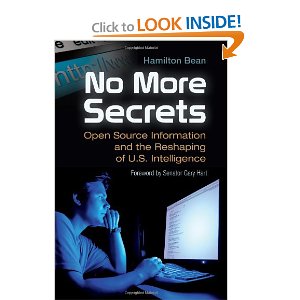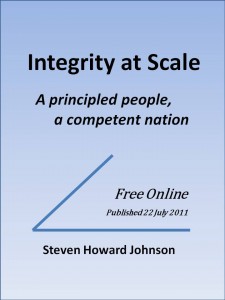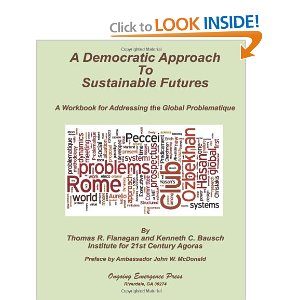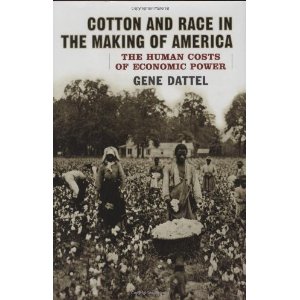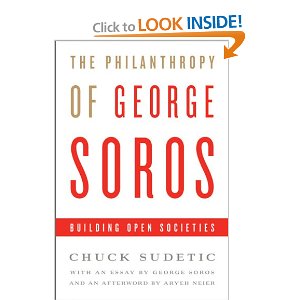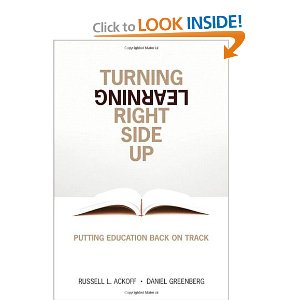5.0 out of 5 stars Spectacular Integrative and Pioneering Work, July 27, 2011
This is a pioneering work that not only explains the true worth of open source intelligence, but also illuminates the institutional bias against it and the pathologies of a culture of secrecy. The use of primary data from interviews makes this an original work in every possible sense of the word. I strongly recommend the book to both professionals and to faculty seeking a provocative book for students.
The book opens with a Foreword from Senator Gary Hart, who cites Senator Daniel Patrick Moynihan's point that secrecy is used against the US public more often than it is used to withhold information from the alleged enemy. He also makes the observation that the collapse of the Soviet Union and the emergence of the web occurred almost simultaneously (1990-1991). See Senator Hart's three most recent books, The Thunder and the Sunshine: Four Seasons in a Burnished Life; The Shield and the Cloak: The Security of the Commons, and my favorite The Minuteman: Returning to an Army of the People. The concept of an “intelligence minuteman” is at the foundation of the Open Source Intelligence movement, and highly relevant to this book by Dr. Hamilton Bean.
In his Preface Dr. Bean makes the point that his book is about institutional change and resistance, and the open source intelligence story is simply a vehicle for examining both the utility of his methods with respect to the study of communications and discourse, and the ebbs and flows of institutional change.

